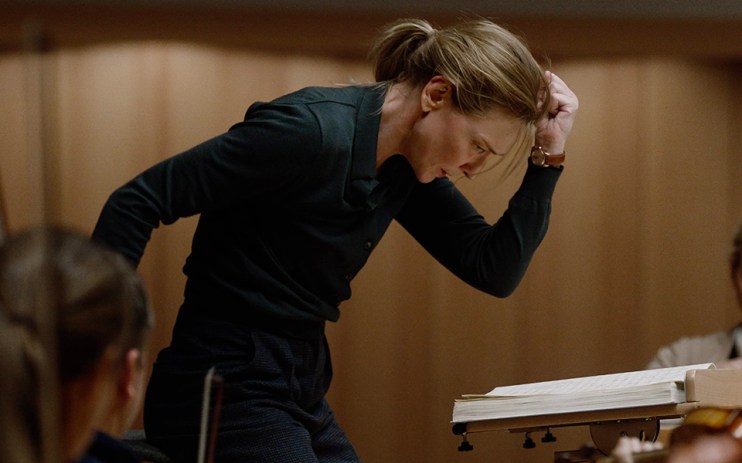Tar review: Cate Blanchett shines as a predatory composer

★★★★★
Cate Blanchett is a maestro playing a maestro in Tar, putting in a devastating performance in which she conducts the audience just as her character conducts the Berlin Philharmonic Orchestra.
From the first time we see her, Lydia Tar – a fictional character with some pointed similarities to real-life luminaries of the classical music world – is just barely holding her life together, riddled with nervous tics and popping pills to get through the day, but performing when it counts. She’s a rockstar on the podium and a superstar on the interview circuit, speaking off the cuff with captivating authority, flitting between English, German and French, often in the same sentence.
The early scenes – an interview with a journalist, a university lecture – feel like eavesdropping on a conversation in a language in which you’re not quite fluent, filled with elusive musical terminology but delivered with such charm and conviction you understand the essence of the words if not the meaning.
Her casual but surgical take-down of a progressive student who says he can’t appreciate Bach because of his misogyny is a masterclass in the art of rhetoric, while also speaking volumes about Lydia’s world view: she’s a musical absolutist for whom ethics are but a distant consideration.
The problems for Lydia arise when she tries to conduct her private life with the same precision as she does the orchestra. She’s willing to fire her longstanding deputy to promote her young lover Francesca, then reneges on the deal when she feels it might incriminate her. She waves her metaphorical baton but the people around her are increasingly out of tune.
There’s a clinical feel to much of Tar. Lydia’s world is the pristine brutalism of the concert hall, all poured concrete and wood panelling, a style of decor that extends to the ludicrously chic apartment she shares with her wife and child. This makes the handful of times she strays somewhere more human feel instinctively meaningful: the cosy flat Lydia can’t bring herself to give up, the disquieting squalor of a Berlin squat, the smallness of her old family home.
As the film goes on Lydia becomes increasingly paranoid and sleep-deprived. She hears strange noises in her apartment: a metronome ticking alone in a cupboard, a strange hum from the fridge, a figure behind the curtains; all echoes of horror movie tropes.
When it eventually comes, her downfall is swift and brutal. The unravelling is spectacular, everything everywhere all at once, death by a thousand bad decisions. There’s a muffled, nightmarish quality to it, Lydia drifting impotently from calamity to calamity.
There are various readings – Tar could be a portrait of an abuser grooming a string of young victims; that Lydia is a charming lesbian is perhaps a nod to the fact predators don’t all look like Harvey Weinstein. But this doesn’t feel right, or at least not entirely right.
Conversely, it’s been criticised as an anti-Me Too parable, a revisionist stab at the left and an attempt to excuse real-life abusers in the classical music world. But this doesn’t feel right either. Director Todd Field is clearly in thrall to his anti-hero but he builds an emotional gallows nonetheless – he just leaves it to the viewer to pull the lever.
Field exploded onto the filmmaking landscape in 2001 with his sparse, slow-burn relationship drama In the Bedroom, following it up five years later with suburban satire Little Children. And since then… Nothing. More than 16 years in the wilderness, attached to a string of abandoned projects.
This makes it all the more remarkable that Tar feels like the work of a man every bit as assured as Lydia. His direction is restrained, confident, precise, conjuring unbearable tension from the mundane.
Tar is a meeting of one of the finest actors on the planet and an enigmatic director finally realising two decades worth of pent-up creative energy. It is a strange, convoluted symphony, quite unlike anything else, but it’s perhaps the first great film of 2023.
